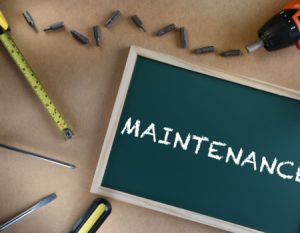
When it comes to managing your rental property, having a clear and comprehensive property management contract is crucial. This document outlines the responsibilities of both the property owner and the management company, ensuring a smooth and professional relationship. Here at The Rental Lister, we understand the importance of a well-structured contract and strive to provide clarity and security for our clients. In this blog, we’ll delve into the key elements you should look for in a property management contract to ensure your investment is in good hands.
Detailed Scope of Services
One of the first things to look for in a property management contract is a detailed scope of services. This section should outline all the services the management company will provide. Typical services include:
• Marketing the property to potential tenants
• Conducting tenant screenings and background checks
• Handling lease agreements and renewals
• Collecting rent and managing security deposits
• Coordinating maintenance and repairs
• Conducting regular property inspections
A comprehensive scope of services ensures you know exactly what to expect and helps prevent any misunderstandings down the line.
Fee Structure and Additional Costs
Understanding the fee structure is essential before signing any contract. The contract should clearly state the management fee, which is typically a percentage of the monthly rent. Additionally, it should outline any extra fees for services such as tenant placement, lease renewals, and maintenance coordination. Be wary of hidden costs and make sure all potential expenses are transparent. At The Rental Lister, we pride ourselves on our transparent pricing, ensuring you have a clear understanding of all costs involved.
Owner and Manager Responsibilities
A well-drafted contract will delineate the responsibilities of both the property owner and the property manager. This includes:
• Owner Responsibilities: Providing necessary funds for maintenance, maintaining adequate insurance, and ensuring compliance with local laws.
• Manager Responsibilities: Efficiently managing day-to-day operations, maintaining communication with tenants, and keeping the owner informed about property status and financials.
Having clear responsibilities helps in maintaining a professional relationship and ensures that both parties are held accountable.
Duration and Termination Clauses
The duration of the contract and the terms under which it can be terminated are critical components. The contract should specify the initial term, which is often one year, and detail the process for renewal. Additionally, it should include termination clauses, explaining how either party can terminate the agreement, any notice requirements, and potential penalties for early termination. This provides flexibility and protection for both the owner and the property manager.
Rent Collection and Financial Reporting
Effective rent collection and transparent financial reporting are key to a successful rental property. The contract should detail the rent collection process, including due dates, late fees, and how delinquent payments are handled. Additionally, it should specify the frequency and format of financial reports provided to the owner. These reports typically include income and expense statements, maintenance costs, and tax information. At The Rental Lister, we ensure timely rent collection and provide detailed financial reports to keep you informed about your investment.
Maintenance and Repairs
Maintenance and repairs are inevitable aspects of property management. The contract should outline the process for handling maintenance requests, emergency repairs, and routine upkeep. It should also specify the manager’s authority to approve expenses and the threshold amount requiring owner approval. Clear guidelines in this section help ensure timely and efficient maintenance while keeping costs under control.
Tenant Screening and Placement
Ensuring your property is rented to reliable tenants is crucial. The contract should describe the tenant screening process, including credit checks, background checks, and reference verification. It should also outline the tenant placement process, including advertising the property and conducting showings. At The Rental Lister, we have a rigorous screening process to ensure we place high-quality tenants in your property.
Insurance and Liability
Insurance and liability provisions are essential for protecting your investment. The contract should require the property manager to carry adequate liability insurance and outline the extent of their liability in case of damages or legal issues. It should also specify the insurance requirements for the property owner, such as landlord insurance and property insurance.
Communication and Reporting
Regular communication between the property owner and the manager is vital for a successful partnership. The contract should establish the preferred methods and frequency of communication, whether through emails, phone calls, or regular meetings. It should also specify the type of reports the owner will receive, such as monthly financial statements, maintenance reports, and tenant feedback.
Conclusion
A well-structured property management contract is the foundation of a successful and stress-free rental experience. By understanding and carefully reviewing these key elements, you can ensure your investment is managed effectively and efficiently. At The Rental Lister, we are committed to providing our clients with transparent and comprehensive property management services.
Ready to maximize your rental income and ensure your investment is in good hands? Contact The Rental Lister today and let us help you achieve your property management goals!
For more information, visit The Rental Lister and discover how we can make property management a breeze.



